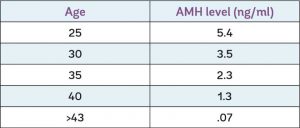It’s quite devastating to find that today, one in six couples will have problems trying to conceive. It’s even more alarming to find that many of them wait a bit too long to seek professional help.
What usually Deter couples from seeking professional help?
At the back of their heads, the couple usually knows and understands that if they’re having a hard time trying to conceive, seeking some professional help will be the best answer, or at the very least, it will be a good start.
Being faced with the inability to conceive naturally can be a devastating experience. Fertility is a topic we find hard to talk about, even with our close family, and friends. However, many such couples (who are now proud parents), realised that when they did seek help unless they choose to publicise it, their journey and experiences throughout their fertility treatments were kept private and confidential.
Some couples may also worry about how far they will have to go in terms of procedures to get pregnant, for it is a common misconception that once they seek the help of a fertility specialist, it will automatically lead to an In Vitro Fertilisation (IVF) to have a baby. In reality, many fertility treatment pathways are ranging from relatively simple treatments to the more complex ones. Some couples may just need a little bit of help with some basic treatments and others could need more advanced reproductive assistance such as IVF.
When conceiving naturally is striked off as an option
Natural conception is dependent on a number of factors (sperm, eggs, and uterus) coming together at the perfect time. If there is a condition affecting one or more of those factors the chance of conception is dramatically reduced.
Infertility is usually defined as not becoming pregnant after a year of trying, but some couples know or suspect they are infertile before this i.e. irregular period or no ovulation. For some people infertility is absolute i.e. there may be no sperm or the woman’s fallopian tubes may be blocked. In the case of absolute infertility conceiving naturally is not an option. However, with the advances in technology, treatment can give most infertile couples a good chance of still having their child.
Causes of infertility in men and women
The reasons behind the failure to conceive are as follows:
- 30% is attributed to female fertility
- 30% to male fertility
- 20% of cases are due to a problem with both partners.
- 20% of cases are unexplained infertility
Common causes of infertility for women include tubal problems, endometriosis, ovulation disorders, polycystic ovaries, recurrent miscarriage, hormonal problems, and autoimmune disorders.
Male infertility can be caused by blocked ducts due to infection, absence of vans deferens, certain medications such as steroids, undescended testes in childhood, autoimmune (antibody) disorders, as well as Varicose veins around the testes.
A large majority of couples – more than half, will not have a clear-cut infertility diagnosis. This can be difficult to accept for it may seem like the end. However, a diagnosis of unexplained infertility can often end in happy outcomes, as many of these couples have normal tubes, normal ovulation and the males have no issues with their sperm.
If you’re concerned, don’t delay – talking to a fertility specialist is the best thing you can do to help you understand if you have a fertility issue, and if you do, what are your options.
The best time to seek intervention
Age is the most important factor when trying to have a baby. A 25-year-old female has a 25% chance of conceiving naturally per month, however, at 35 years this falls to 16% and at 41 years it drops again to less than 5%. Every year counts when you are getting into your late 30’s. If you are generally healthy and are younger than 35 years of age, with no pre-existing medical conditions that may affect fertility, giving yourself one year or so of trying to conceive naturally is recommended before seeking help. If you’re over the age of 35 however and are trying for a baby, you should not wait more than six months to seek intervention if you cannot conceive naturally. These are the common rules of thumb on the best time to seek help.
Conclusion: The sooner a couple sees a specialist for help, the better their chances are to get pregnant.
The costs
Fertility treatments can range in costs, from RM500 for the basics right up to RM20,000 for the most advanced treatments. Treatment will depend on the type of intervention needed to give you the best chance of conceiving a baby.
The more advanced treatments such as IVF often provide a much bigger chance of success as they reduce some of the factors that may be influencing a couple’s fertility. There are a number of options for couples going through treatments. Look out for offers of easy-payment packages, split payments, and package deals, which may help minimise the treatment cost.
Waiting too long is not a good idea, and here’s why
Time is of the essence when it comes to fertility treatments for those who need it. Often couples seek specialist treatments too late after years of trying to conceive, and they end up needing more advanced procedures such as In Vitro Fertilisation (IVF) and Intra Cytoplasmic Sperm Injection (ICSI). With age, the quality of both eggs and sperm decreases therefore couples should try for a child sooner rather than later.
The treatment pathway is driven by the diagnosis of infertility issues. Depending on the diagnosis and factors involved, the treatment that is likely to give the patients the best chance of success would be chosen. For some, there are multiple pathways but for others, their options are limited by their diagnosis.
Many causes of infertility, such as male infertility, tubal damage, endometriosis, ovulation problems, and unexplained infertility can be successfully treated with IVF. For example, IVF can help a 35-year-old couple after a year of trying, with about a 40% chance of conception per cycle. This is double their chances of conceiving naturally per month, but it may also depend on the number of cycles of this procedure they are prepared to do if their situation calls for it.
If a couple simply can’t conceive, what should they do?
Understanding your own body, which includes your overall health, even before you are ready for a family can help you identify any issues early so that something can be done about it. For instance, if you and your partner are known to be healthy and practice good lifestyles, and still face problems conceiving, seeking advice in the form of fertility consultation will provide you with a better chance of starting a family compared to waiting too long. Remember too, that fertility screenings are very similar to health screenings – if something is amiss, it’s always better to know about it and address it as soon as possible.
For Women – Checking on your ovarian reserves. While the textbook age when a woman’s egg reserves start to decline in numbers is 35 years of age and above, some women, due to various life factors, may reach this phase earlier than expected. Testing for the number of egg reserve also knows n as ‘ovarian reserve’ will help to estimate the number of egg follicles developing at a particular time. Testing of your ovarian reserve involves doing a blood test for the hormones FSH and estradiol between the second and fourth day of a woman’s menstrual, as well as a pelvic ultrasound. If her case calls for it, a blood test for Anti-Mullerian Hormone (AMH) may also be conducted, whereby this can be done at any time of the month.

For Men – Semen analysis. For men who are concerned that they’re not able to impregnate their partner, a semen analysis will help. This analysis works by checking the number of sperm, their shape, and their ability to move. This test is normally part of a complete fertility screening package that follows a fertility consultation.
Couples who are having difficulty in conceiving should consider taking action to ensure that they do not miss out on their chance of having their own family – due to the fact that fertility issues are rampant these days and our biological clocks are ticking away!


